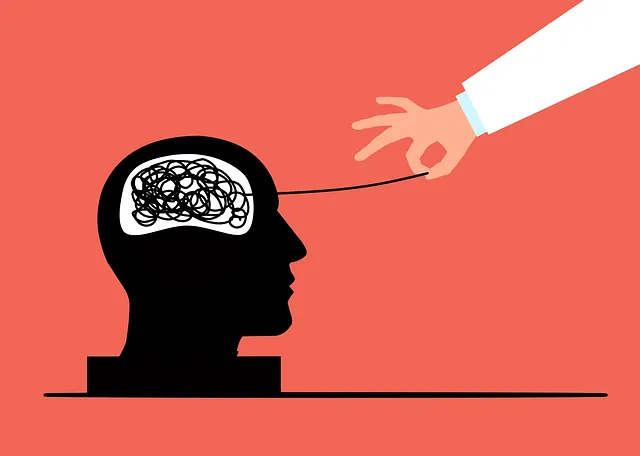The Mental Wellness Group Facilitators at Longmont Kaiser Permanente play a crucial role in supporting individuals' mental health journeys by creating safe spaces for open discussions, teaching tailored techniques like resilience building and mindfulness practices, and fostering empathy. They aim to enhance self-positivity within a supportive community, addressing unique mental health needs through effective communication strategies and structured group sessions. These facilitators are instrumental in navigating the Longmont Kaiser Permanente mental health number, combining journaling exercises with emotional well-being promotion to foster camaraderie and destigmatize mental health issues.
Mental wellness group facilitation plays a pivotal role in fostering community and healing. This article explores effective techniques for those guiding such groups, focusing on strategies to create safe spaces at Longmont Kaiser Permanente mental health number. We delve into understanding the facilitator’s role, cultivating supportive environments, mastering communication, and leading structured sessions. By implementing these practices, facilitators can enhance participant engagement, promote open dialogue, and ultimately contribute to improved mental wellness within their communities.
- Understanding the Role of a Mental Wellness Group Facilitator
- Creating a Safe and Supportive Group Environment
- Effective Communication and Engagement Strategies
- Techniques for Leading Structured Group Sessions at Longmont Kaiser Permanente Mental Health Number
Understanding the Role of a Mental Wellness Group Facilitator

The role of a Mental Wellness Group Facilitator at Longmont Kaiser Permanente goes beyond simply organizing sessions; it involves cultivating a safe and supportive environment where individuals can navigate their mental health journeys collectively. These facilitators serve as guides, helping group members explore and manage their emotional well-being through shared experiences and peer support. They facilitate open discussions, encouraging participants to share their stories and insights while fostering an atmosphere of understanding and empathy.
By employing techniques that promote resilience building and emotional regulation, facilitators empower individuals to embrace mind over matter principles. This involves teaching coping strategies, mindfulness practices, and effective communication skills tailored to the unique needs of each group. The ultimate goal is to enhance participants’ ability to manage stress, overcome challenges, and cultivate a positive sense of self within their supportive community.
Creating a Safe and Supportive Group Environment

Creating a safe space is paramount when facilitating mental wellness groups. This involves cultivating an environment where every participant feels seen, heard, and supported. As a group facilitator, it’s essential to establish clear boundaries, ensuring confidentiality and fostering trust among members. Encouraging open dialogue by actively listening and validating each individual’s experiences can help build a sense of community.
In the Longmont Kaiser Permanente mental health number context, understanding the unique challenges faced by healthcare providers is crucial. Incorporating burnout prevention strategies for Healthcare Providers into group discussions can offer valuable insights. By promoting self-care practices and encouraging members to share coping mechanisms, facilitators contribute to Mental Health Awareness, ultimately enhancing participants’ confidence in managing their well-being.
Effective Communication and Engagement Strategies

In facilitating mental wellness groups, effective communication strategies are key to fostering a supportive and engaging environment. Group leaders should encourage active participation by all members, creating a safe space for open dialogue. Techniques like modeling active listening, reflecting emotions, and asking powerful questions can enhance self-awareness exercises and promote meaningful connections among participants. By using these Communication Strategies, facilitators at Longmont Kaiser Permanente mental health number can ensure that group sessions become powerful tools for healing and personal growth.
Public awareness campaigns development plays a crucial role in destigmatizing mental health issues within the community. Facilitators can integrate these campaigns into their groups to encourage members to share experiences and educate others. Through sharing personal narratives, individuals gain the courage to seek help and inspire positive change. Incorporating Self-Awareness Exercises during group sessions further strengthens this process, allowing participants to explore their thoughts, feelings, and behaviors in a collaborative setting.
Techniques for Leading Structured Group Sessions at Longmont Kaiser Permanente Mental Health Number

Leading structured group sessions at Longmont Kaiser Permanente mental health number requires a thoughtful blend of mental wellness journaling exercise guidance and emotional well-being promotion techniques. Begin by creating a safe, non-judgmental space where every participant feels comfortable sharing their experiences. Incorporate icebreakers and interactive activities to foster camaraderie and build trust among group members.
Use the stress management workshops organization as a framework to structure each session. Start with setting clear goals and expectations, followed by engaging discussions on relevant topics such as coping mechanisms, mindfulness practices, or emotional awareness. Encourage active participation through pair sharing, small group debates, and whole-group reflections. Ensure every voice is heard, and facilitate open dialogue while adhering to the ground rules established at the beginning of the program.
Group facilitation plays a vital role in enhancing mental wellness, as evidenced by the successful programs at Longmont Kaiser Permanente mental health number. By understanding the unique dynamics of group settings and employing techniques to create safe spaces, facilitators can foster profound connections and support among participants. Effective communication strategies ensure every voice is heard, encouraging active engagement and participation. Through structured sessions guided by proven methods, facilitators can lead groups towards positive transformations, ultimately revolutionizing mental health support in our communities.






